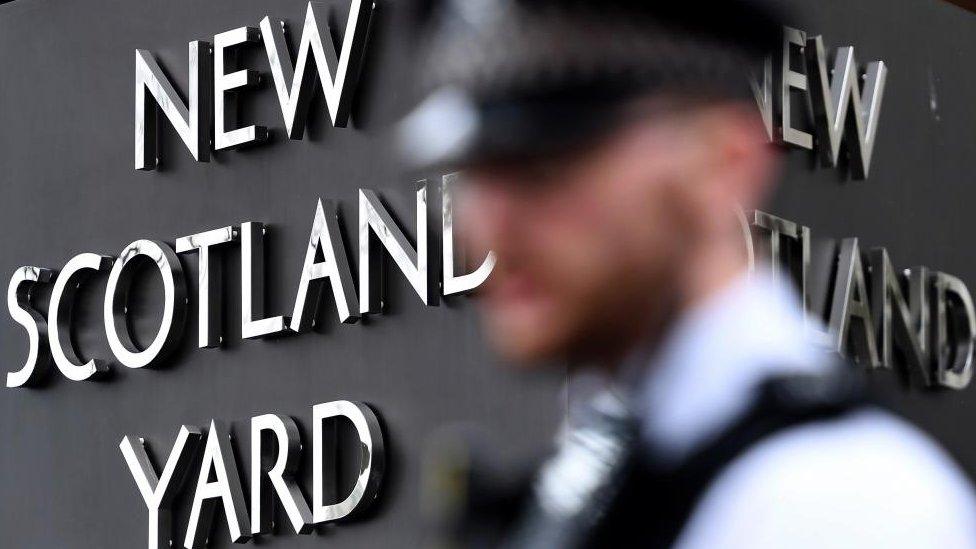Met Police urges diverse Londoners to sign up with force
- Published
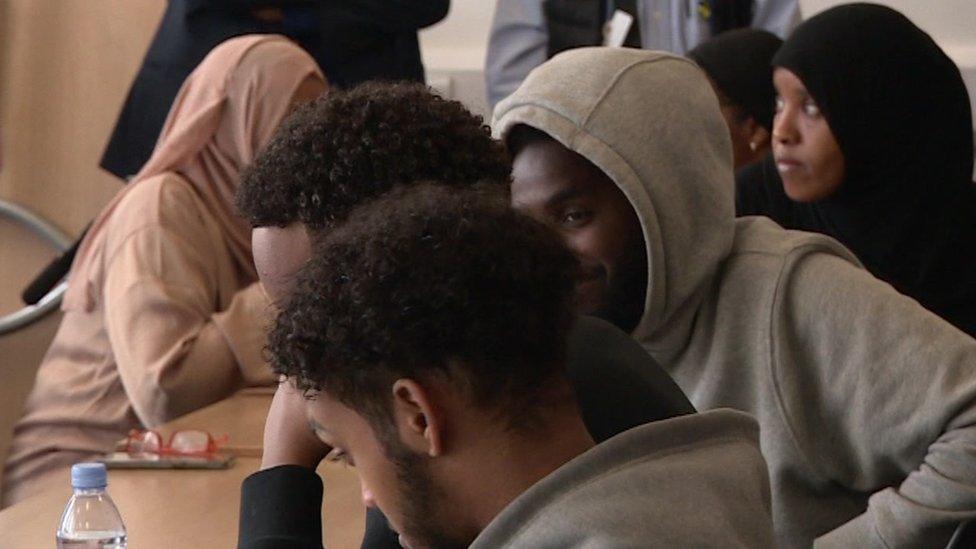
The Met uses recruitment events in communities to try and boost diversity in its workforce
In March, the Met Police was described in the Casey review as being institutionally racist.
Baroness Casey found the Met's workforce "continued to fall far short" of representing London's black, Asian and minority ethnic men and women.
She warned at current recruitment rates, it would take "at least another 40 years" to reflect diverse London.
But how do you convince these Londoners to join when trust in the force has been low for years?
One of the things the Met has rolled out in recent years is targeted recruitment for women, black people and ethnic minority communities to increase diversity in its workforce.
As part of this drive, Met officers were invited by a community group to a library in Hayes, west London, to talk to young people about career opportunities.
They talked to young people and adults about how they police the capital, and what steps they'd taken to try and engage with communities.
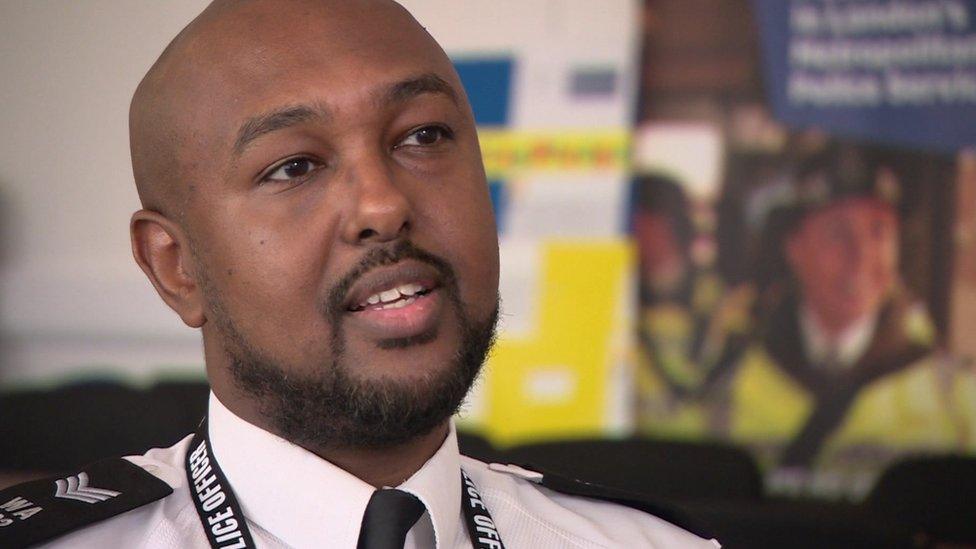
Sgt Abdirazak Iman says "if you want someone to represent you, you have to join the Met"
One officer explained the range of Met recruitment schemes on offer and their starting salaries, pointing out benefits including free travel on Transport for London (TfL) and how soon they'd be able to use a warrant card.
'Preconceived ideas'
"The question is: who do you want in your house?
"Who do you want to come when you make that phone call?," Sgt Abdirazak Iman responded when asked what he'd say to persuade someone who is black to consider joining the Met Police.
"Change will only come from within," he added.
"If you want someone to represent you, you have to join the Met."
Sgt Iman is of Somali heritage and describes signing up as one of his best decisions, though he admits that he had some "preconceived ideas" about the force when he was growing up in Thornton Heath in south London.
He believes the key to building trust with black communities lies in good neighbourhood policing, showing empathy and listening to concerns.
Sayce Holmes-Lewis, the founder and CEO of youth mentoring organisation Mentivity, said: "You can't recruit people from the same demographic you are oppressing on a daily basis."
"A lot of young people wouldn't even think about joining the police.
"They need to take positive steps in terms of engaging with the community before they can even think about recruitment," he added.
I put his thoughts to Met Commander Colin Wingrove, who said: "It's really incumbent on us to build bridges.
"Actually, here today we have officers from various diverse backgrounds, speaking with young people around things like stop and search."
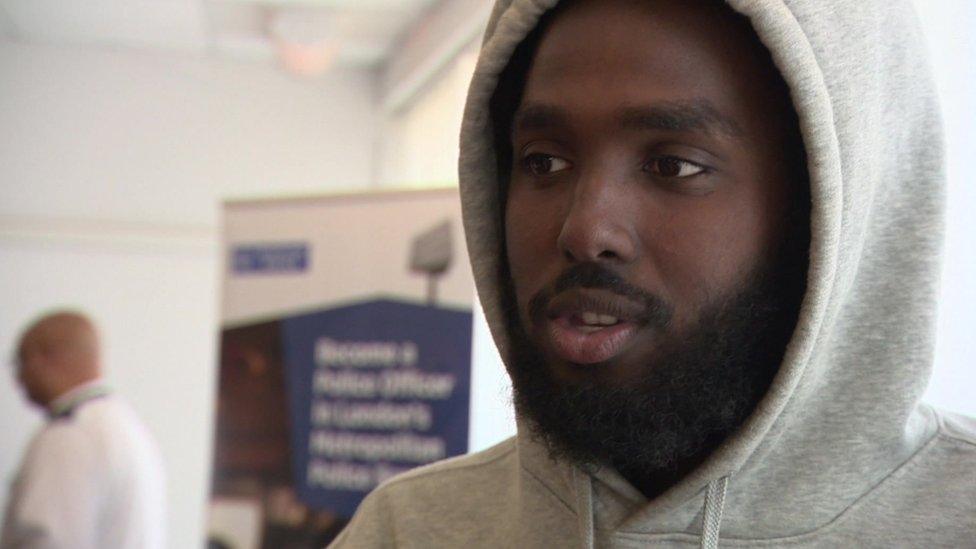
Abdi Hirsi, 22, says young people needed to hear "police are not your enemy"
Stop and search does indeed come up - the police officers listen to concerns and explain how they would be expected to carry it out.
Several young people who attended the event felt positive about the scheme, including Mohamed Mohamoud, who said he's considering applying to join.
"It would be good for the community, to have more people who look like me," he said.
"I don't think I could make a difference on my own. It would take the community to come together."
Abdi Hirsi, 22, says he's thinking about applying to be a Met data analyst.
"You hear about (a lack of trust) all the time" he explained, adding he thinks the force needs to engage more with young people because they need to hear "police are not your enemy".
"Obviously there are a few bad apples with the police stop and searching but what they've said and what they've relayed to us is positive," he added.
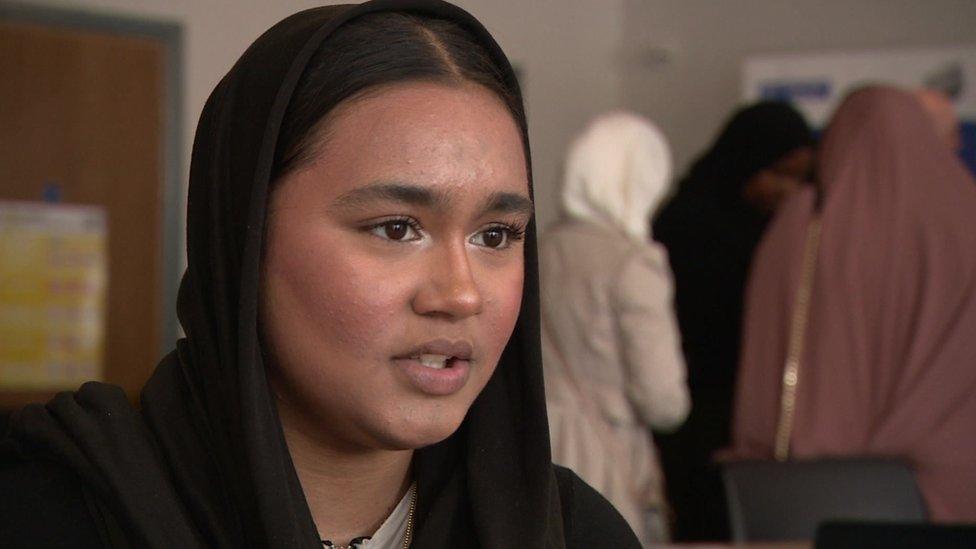
Tazlim says she has been encouraged to join the Met because "you have to do something in order to make a change"
Tazlim, who's 16 and of Bangladeshi heritage, dreams of becoming a crime scene investigator.
She explained she sees a lot of videos on social media where police "are not good", adding one of her friends, who is black, has been repeatedly stopped and searched and "feels like he can't trust the police, he can't go to the police for anything."
She added she wants to join the force because "I feel like, as a person of colour as well, I should be doing something to help him".
"You have to do something in order to make a change," she said.
But it's not just recruitment that's a challenge for the Met.
The Casey review also highlights black officers are leaving the force at higher rate than their white colleagues, are nearly four times more likely to raise a grievance, and are disproportionately represented in the misconduct system.
The chair of the Met Black Police Association, Insp Charles Ehikioya, said black officers are being "drummed out" because they are told "they're not suitable, not capable, haven't got what it takes".
He said some who do progress have faced discrimination from white colleagues questioning whether they got the post because they're black.
Cmdr Wingrove said schemes to support black officers through promotion "are really important", adding the force was listening to officer feedback on how they could encourage them to stay with the force.
However Insp Ehikioya believes the commitment is not there, saying: "It's sad. I love my job, my colleagues love their jobs, but we don't we don't want to be treated in this abhorrent manner."
While the force is calling for more black Londoners to sign up to help change the Met, some believe they need to see more change from the Met itself before that can happen.

Follow BBC London on Facebook, external, Twitter, external and Instagram, external. Send your story ideas to hellobbclondon@bbc.co.uk.
- Published21 March 2023
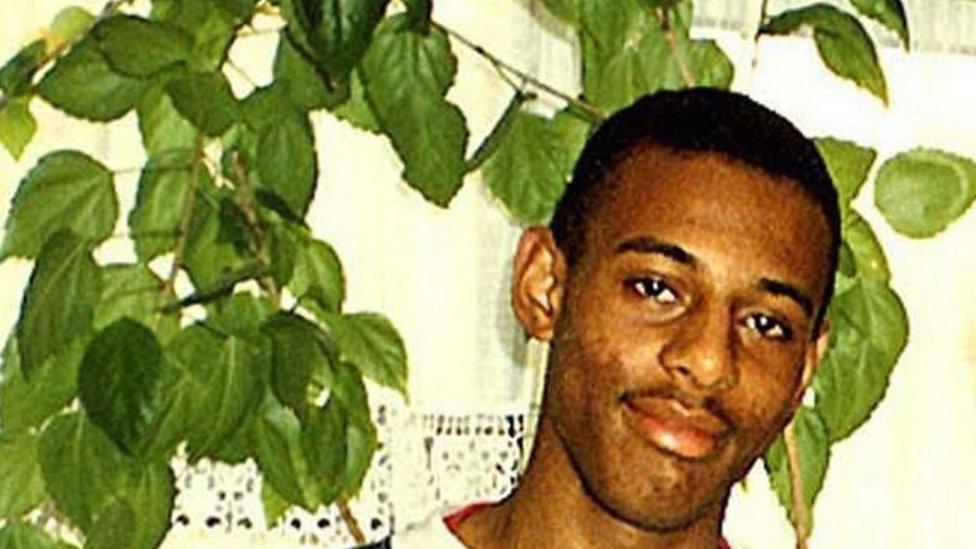
- Published21 March 2023
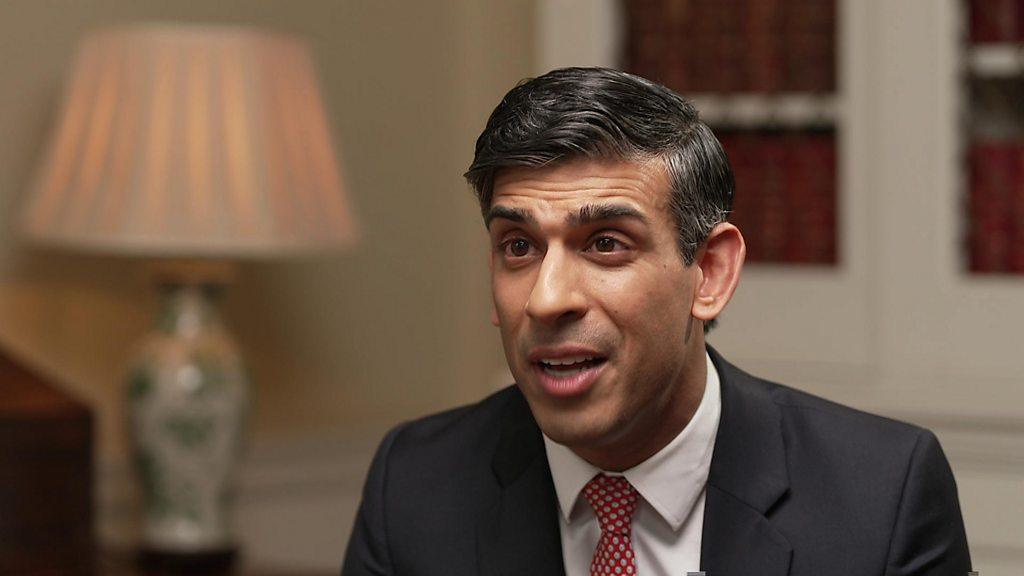
- Published21 March 2023
